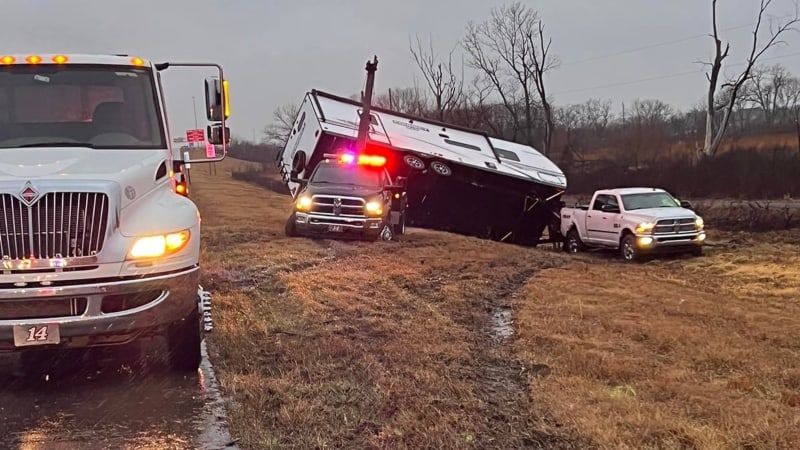Thanks for your support! If you make a purchase using our links in this article, we may make a commission. And, as an Amazon Associate, I earn from qualifying purchases. See the full disclosure here.
What makes RV insurance expensive is an top-end RV. Sure, that’s a laughable oversimplification, but in broad terms, it’s very true. If a Winnebago Micro Minnie FLX only carried a value of $500 brand new (don’t we all wish?), insurance premiums would be microscopic.
Of course, there is way more that goes into the cost of RV insurance than value, although that’s the driving factor. Other factors, such as size, the minimum coverage of your state, the type of RV, your choice in coverage, and your insurance provider, are all major players.
Even the individual components that make up the overall specs of an RV influence your insurance costs. Then there are the tiny factors that make RV insurance expensive. Lets dive in a little deeper as to why RV insurance can be so costly.
Is Insurance on an RV Expensive?
Yes, insurance on an RV can get pretty expensive. Not to the point where it’s unaffordable. If that were true, you wouldn’t see many RVs on the road. And, of course, expensive is relative. What is expensive to someone could seem affordable to another, depending on income, monthly bills, and other factors.
How Much Does RV Insurance Cost on Average?
Unfortunately, there is no constructive way to come up with an average cost of RV insurance because of all the unknowns. For instance, a Class C motorhome insurance rate ranges between $500 to $3,000. That’s a huge gap.
Throw in Class A motorhomes, Class B, and travel trailers (everything from a teardrop to a fifth wheel), and the calculations are extensive. It’s much easier to come up with a number per state than across the country, and there’s also a huge disparity there.
You’re more likely to have a higher RV insurance range per year in Michigan while paying less in states like Oregon or North Carolina.
Why is RV Insurance so Expensive?
Consider the state’s minimum requirements for RV insurance. Every one of them requires bodily injury liability.
Most states want property damage liability insurance as well. Once the mandates are out of the way, there remain several driving factors.
- The size of the RV
- Choice of full-time, part-time, and vacation liability
- Personal effects coverage
- Every provider will offer different…
Click Here to Read the Full Original Article at RVBlogger…
